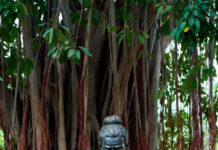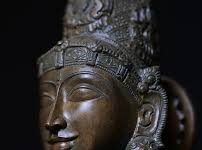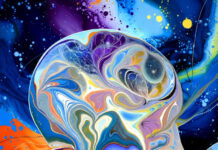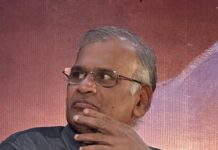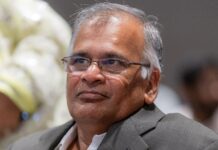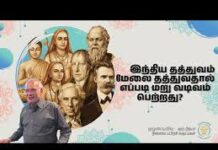 Dear Jayamohan,
Dear Jayamohan,
I have already met you three times in Coimbatore and talked to you for a few minutes. I have read many of your novels, including Aram, Vishnupuram, Umai Chennai, Velliya Yaani, Purapadu, and Solvalarkadu.
I am currently watching your lectures on the YouTube channel. The reason I am saying all this is to tell myself that I am somewhat qualified to ask you the following question.
My question is,
“I do not believe in God; I am Advaiti, and therefore I do not pray to God.” You had said in an interview. In another YouTube channel, you said, “I realized that there were gods when I went to the Moodevi temple (Jyeshta Devi) in Kerala.”
Aren’t these contradictory?
Suryakanthi Satheeskumar
Dear Sathees
I cannot explain this briefly and clearly. This understanding is primarily intuitive rather than logical. If I try to explain it philosophically, it will become more and more complex and subtle.
The concept (or knowledge) of God is ancient, and in a way it is the most primitive thought we still have. Generally, it is a force that creates, preserves, and destroys the universe. People believe that praying to it will bring about beneficial things. I do not believe in that concept. Therefore, I do not pray. I pray to the Atma, which is the soul of the universe, also known as Paramatma. Actually, I’m making a vow to myself.
My concept of God is based on Advaita. It is a complete entity that encompasses everything in this universe. Its existence is perceptible, not understandable. Its purpose and nature are completely beyond the knowledge of any human being or religion. It is, and I am that, too. Realizing ‘me is that’ (Aham Brahmasmi) and becoming ‘be that’ is the spiritual state I seek. My meditation is to instruct that to myself again and again and create states in which I become that.
I can refer to it only as ‘it’ (Tat). It expresses itself in various ways, both here and elsewhere. We can compare it to the undulating waves of the ocean. Waves are the ocean, and the ocean is not just waves. At times, it shows itself in our familiar areas. A huge banyan tree standing majestically is one of its presences. The banyan tree is merely an object, yet it manifests as a point of expression for that unified entity. So it is ‘that.’.
Now listen, I never said the word ‘God’; I used the word ‘deity.’ God is an omnipotent personification, which I can’t accept, because it is a man-given definition of the unknown essence of the universe. Deity is a manifestation or expression of its essence, which is everywhere and erupted in a particular way, in a particular place.
We make what emerges into a form or personification within the limits of our knowledge and imagination. We give it some qualities. All the ‘deities’ that we know are our imaginations, but what became of that deity is there. We can feel its existence, but we cannot know it. We can only see the waves, and we imagine the ocean.
That is all I can say for now.
Jeyamohan


